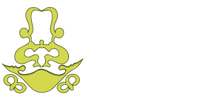![]()

If you are Chilean, you do not need a passport to travel to Easter Island. In the case of being a foreigner, this document is mandatory and essential for the exchange of money, among other things. No visa or vaccination certificate is required to enter Rapa Nui.


As a national territory, as a Chilean you can enter the Island rigorously packaged food products, with the exception of fruits, seeds or grains, vegetables or products of unprocessed animal origin, land; firearms, ammunition or explosives; illegal drugs, biological products, veterinary drugs, animals or pets, living or dead species.


The drinking water of the village of Hanga Roa is completely drinkable, although tourists are always advised to consume bottled or boiled water. If you go out to eat at a local restaurant, it is customary to leave as a tip 10% of the value of the bill.

 In order to maintain the legacy of the Rapa Nui culture, visitors should keep in mind the following: it is forbidden to go up to the Ahu (ceremonial altars) or harm the Moai (stone giants dedicated to the memory of the illustrious ancestors and who guard their descendants from their height). It is also not allowed to enter the ceremonial houses of Orongo, where the most spectacular setting of the whole island is located.
In order to maintain the legacy of the Rapa Nui culture, visitors should keep in mind the following: it is forbidden to go up to the Ahu (ceremonial altars) or harm the Moai (stone giants dedicated to the memory of the illustrious ancestors and who guard their descendants from their height). It is also not allowed to enter the ceremonial houses of Orongo, where the most spectacular setting of the whole island is located.

 If you visit Easter Island in February, the ideal is to plan your trip for the first two weeks of the month when the popular Tapati Rapa Nui party is held, which features a vibrant program of music, dance and traditional cultural events.
If you visit Easter Island in February, the ideal is to plan your trip for the first two weeks of the month when the popular Tapati Rapa Nui party is held, which features a vibrant program of music, dance and traditional cultural events.
USEFUL INFORMATION
Climate: Subtropical maritime, with temperatures ranging between 14 and 27 ºC
Average Temperature: 20ºC
Coolest month: August (14.7 – 17 ºC)
Warmest month: February (23.8 – 27 ºC)
Language: Rapa Nui, Spanish, English, French and German, among others.
Currency: Chilean pesos, euros and US dollars. Some places accept payments with credit cards, being the charge of these in Chilean pesos.
Energy: 220 volts
DIRECTORY
Sernatur: 32 2100255
Carabineros: 32 2100219
Firefighters: 32 2100264
Ambulance: 32 2100215

